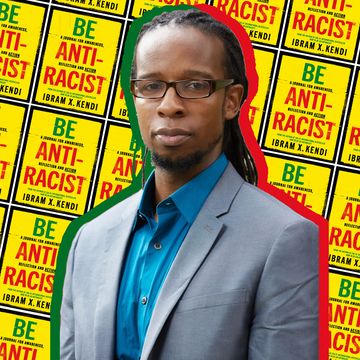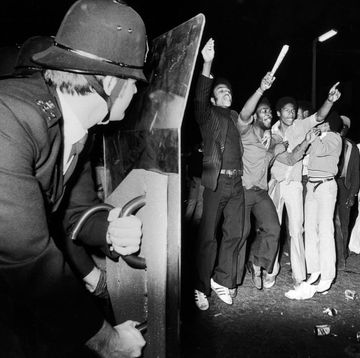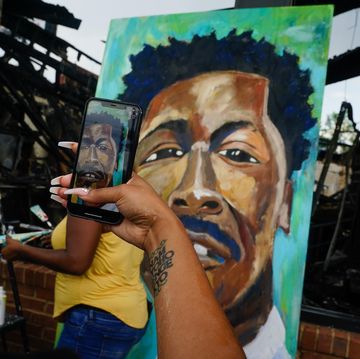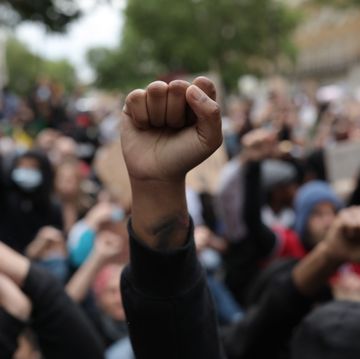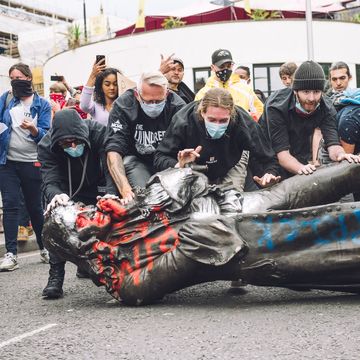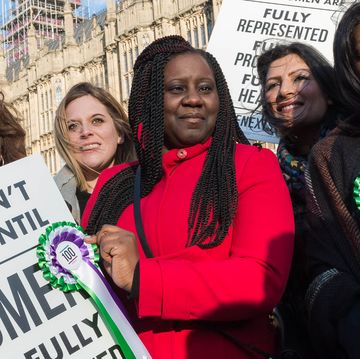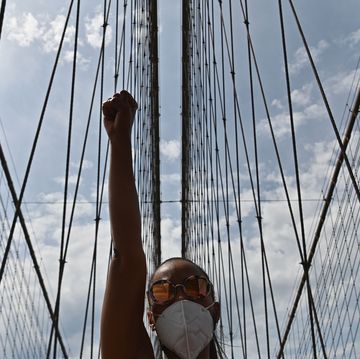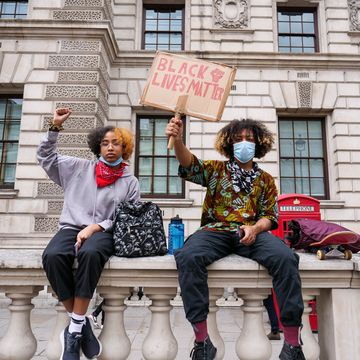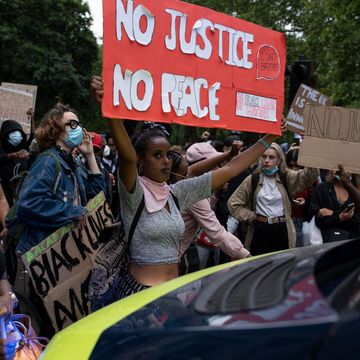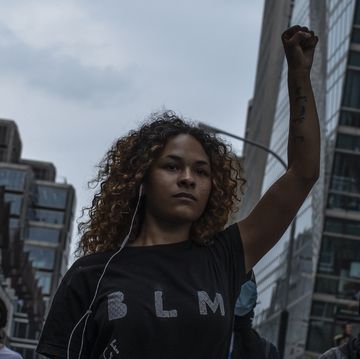Three weeks on from the killing of George Floyd by Minneapolis police officer Derek Chauvin, the world is already starting to move on. The protests held in his name have disappeared from front pages, replaced with giddy write-ups about the return of the Premier League. But the systemic racism that led to his death, and the death of Rayshard Brooks just a week ago, doesn’t disappear in a news cycle.
Black lives are devalued by the social institutions that govern all our lives. This is as true today as it was three weeks ago, or five years ago, when 12-year-old Tamir Rice was shot by police officers in Cleveland, or 29 years ago, when Rodney King was beaten almost to death by the LAPD. We’ve turned a collective blind eye to this truth for most of our lives, but something about the way George Floyd was killed was so egregious, so disproportionate, so overtly unjustifiable that staying silent would say more about us to ourselves than speaking out would say to others.
Something is different this time, we all feel that. But as seminal as this moment is, this moment alone is not enough. We are at a milestone, not a result. We all want change now, but we have to know how to keep this momentum and work to achieve this change.
To do this, we have to be clear what we are fighting and how we can fight it. We must be able to accept and identify the cancer that is systemic racism: the presence of a structural, societally-accepted oppression of those of us with darker skin, that breeds in plain sight because we allow it to.
Racism in America is easier to understand because the US is a place of extremes, where capitalism and violence combine to leave the most economically disenfranchised citizens the most vulnerable to subjugation. In this America, systemic racism manifests as what was done to George Floyd, to Rayshard Brooks, to Tamir Rice and Eric Garner and Michael Brown.
Those names galvanise us, but the blatant injustice inflicted on them also desensitises us to the everyday experience of racism, and this can slow our movement. Unless our ardour for change is stoked by yet more videos of policemen killing yet more unarmed Black men, it can burn out.
This is why we need to recognise the everyday experience of system racism, not just its extremes. Racism doesn’t only wear pointy white hoods, drape itself in Confederate flags, or dress in police tactical blues. In only allowing our path to be signposted by the most gratuitous displays of inhumanity, we overlook the everyday infractions that stand between the death of George Floyd and our end goal of equality.
If racism in the US is almost cinematically invasive, in the UK it is a pervasive narrative. Systemic racism is not just displays of racial violence by men in uniforms, it is also the lack of consequence for the clear degradation of the very idea of equal rights for Black people. It is a constant stream of acts and messages that reinforce one simple concept: you do not belong here, and so here you are entitled to less.
Systemic racism is the fact that Amber Rudd can head the Windrush scandal then just move on, smiling, to a journalistic career. It is the fact that writing about ”piccaninnies” and “watermelon smiles” doesn’t preclude Boris Johnson becoming leader of our nation. It is Nigel Farage fronting an LBC show five days a week for three years and being invited regularly to give his opinions on the BBC.
Systemic racism is the way society legitimises, by lack of censure, those individuals and organisations that embolden the racist idea that Black people are less entitled to equitable treatment.
The way this has been seeded in the US is simplistically linked to slavery; Black people were brought there as slaves so should either remain as subjugates, or leave. This was enshrined in law, and still exists, systemically, today. Here in the UK, the dominant narrative is that Black people were invited to help rebuild the country after the second world war and that now that job is done, it is somehow within the purview of the white community to disinvite us. We have overstayed our welcome, we should go ‘home’.
Systemic racism is the fact that despite all we know about racial inequality in this country, people feel emboldened in polite society to say “if you don’t like it, why are you here”. It is the statement that “this is one of the best places in the world to be a Black person”.
Allow this to sink in. We can all acknowledge there is not equality, and yet Black people are encouraged to simply be grateful for what they have, as though rights are a privilege and a granted favour: if you’re not happy with what is allotted here, then you’re welcome to try somewhere else.
Systemic racism makes oppression seem normal. Statistics that should be shocking are understood as ‘just the way things are’. In the century since the Cabinet system was set up, there have only been two Black full members. Police are five times more likely to use force against black people. Only 1.4 per cent of FTSE 100 executives are black. Fewer than one per cent of university professors are Black, and there are no black staff in leadership teams of UK universities. Do these figures seem anomalous to you? Do they speak to injustice and exclusion as viscerally as a video of a police shooting?
We say “Black Lives Matter” because society has proved, time and again, that it believes they don’t. But we cannot combat that narrative that Black lives matter less if we only talk about it when a Black life is taken. This time, we cannot allow ourselves to be distracted from dismantling the systems that cause those deaths.
Any power system in commerce or politics has three levels: management, employee, consumer. We all feature somewhere in that structure and we all have the ability to enact change when we learn to organise and mobilise our power.
Change is about using our voice as leaders, employees and consumers. We shouldn’t question whether systemic racism exists, but move with acceptance that it does and ask each other what we are going to do about it. Consumers must ask employees, employees must ask leaders – whether that ‘leader’ is your CEO or your MP – and leaders must be forced to answer. Momentum now is about holding people to account before the memory fades and we return to the slumber of pretending that it is acceptable for people to have rights but not equality.
We can all participate in this. All it takes is the fortitude, courage, integrity, honesty and decency to do so.
When the spotlight shifts, don’t be fooled into thinking the problem has shifted. Racism exists, and it always will, unless we work every day – not just when there is a body in the street – to change it. When Barack Obama was elected in 2008, they talked about America being post-racial. But we buried George Floyd last week. We must not let the conversation be laid to rest with him.
Like this article? Sign up to our newsletter to get more delivered straight to your inbox
Need some positivity right now? Subscribe to Esquire now for a hit of style, fitness, culture and advice from the experts





